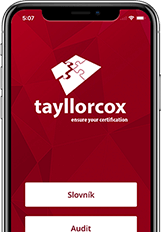 Introduction to Serverless on Kubernetes
Introduction to Serverless on Kubernetes
Learn how to build serverless functions that can run on any cloud, without being restricted by limits on the execution duration, languages available, or the size of your code. This course is designed to give you an overview of how a serverless approach works in tandem with a Kubernetes cluster. This course will help you understand what serverless is starting with an overview of the CNCF landscape around serverless technologies. You’ll learn how serverless can be made portable through the use of the Serverless 2.0 definition and Kubernetes, and explore the OpenFaaS toolchain, including: UI, CLI and REST API. You’ll also learn about the OpenFaaS ecosystem, including the template store and function store for sharing functions and code templates. The course explores how to operate OpenFaaS with autoscaling, metrics, dashboards, upgrades, custom URLs, and versioning.

Virtual Training nebo e-Learning?
Máme dostatečnou flexibilitu, takže vybírat můžete jak prezenční termíny, tak online kurzy.
Zkuste živý kurz virtuálněTarget group
The course is designed for developers and IT operators interested in exploring new approaches for building software, who prefer being able to set their own limits when it comes to things such as timeouts and choice of programming languages. Before enrolling, students should have an understanding of cloud and container technologies – including Kubernetes – as well as experience with Python.

Course structure
- Chapter 1. Introduction to Serverless
- Chapter 2. State of Serverless in CNCF
- Chapter 3. OpenFaaS
- Chapter 4. Setting Up Kubernetes and OpenFaaS
- Chapter 5. OpenFaaS Features
- Chapter 6. Create Your First Function with Python
- Chapter 7. Configuring a Function
- Chapter 8. Operating Serverless
- Chapter 9. Taking It Further
Benefits
This course is designed to show you how a serverless approach works in tandem with a Kubernetes cluster, and help you discover the potential of serverless functions. By the end of the course you will be able to build functions using Python, configure them, and use secrets, as well as to add dependencies via pip, and learn how to build native extensions. You will also know how to expose functions securely on the Internet with TLS, and secure them with authentication.
Before taking this course, you should be familiar with:
- A basic knowledge of CLI tools and Linux administration
- Some experience of the Python programming language
- Experience with Kubernetes. If you are a novice Kubernetes user, we highly recommend you take the Introduction to Kubernetes (LFS158x) MOOC on edX
- A basic understanding of how Docker and containers work
The recommended configuration of a development environment for the course is the following:
- Ubuntu 18.04
- 8 GB RAM
- 2 CPU cores
The hands-on exercises have also been tested on Mac OS and Windows 10 operating systems.
Jak nás hodnotí
V čem jsou naše reference výjimečné? Nejsou to jednorázové akce. K nám se lidé vrací rádi a nezavírají před námi dveře.
Podívejte se na úplný seznam referenčních klientů, kteří na nás nedají dopustit.
Nejste si jisti, zda je tento kurz pro vás?
Zavolejte nám a my vám poradíme.
Jsme vám k dispozici na telefonním čísle +420 222 553 101 vždy od pondělí do pátku: 9:00 - 17:00.
Nemůžete volat? Zkuste nám napsat
Chcete získat dárek k narozeninám?


